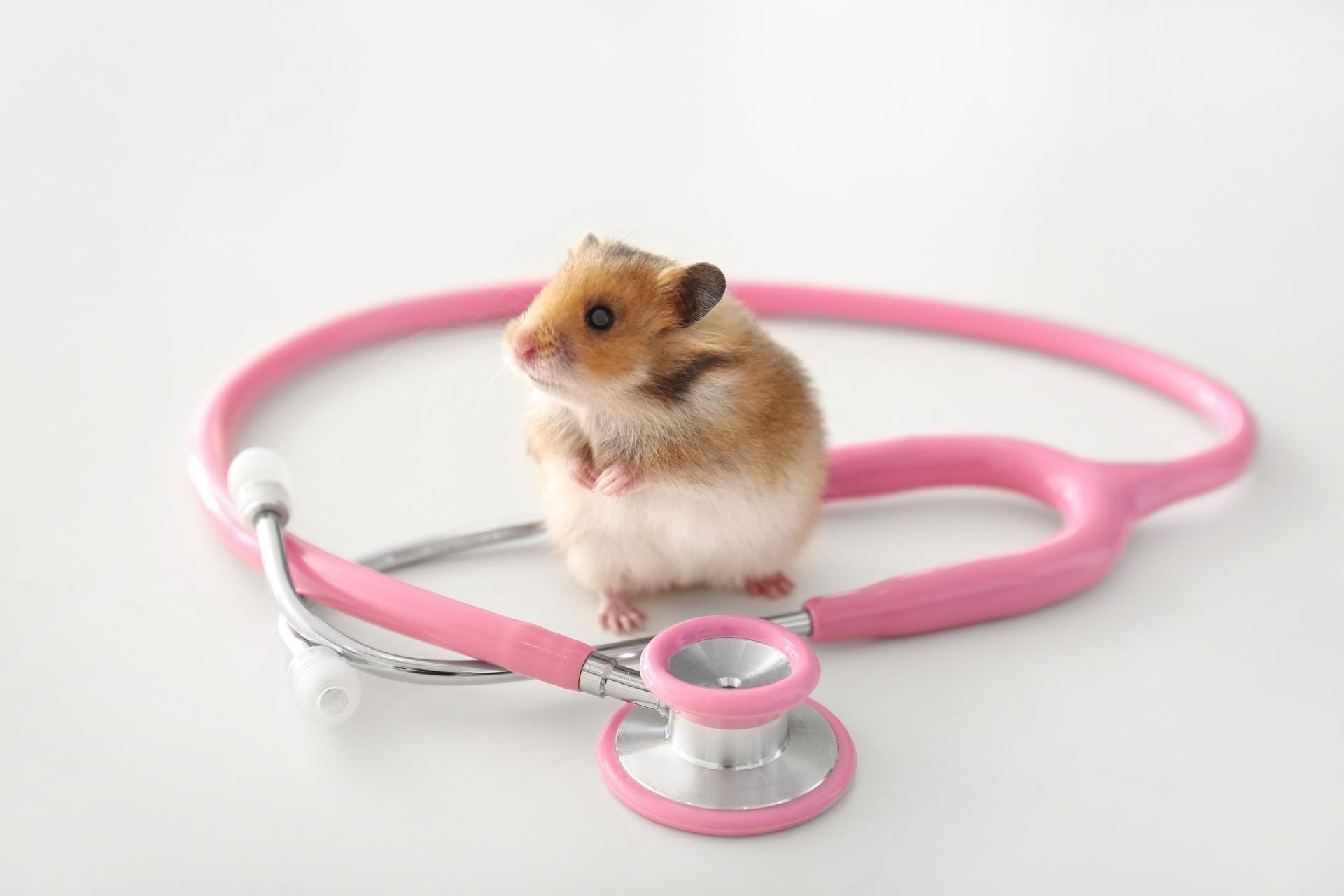What are the symptoms of a sick hamster? A sick hamster may show signs like loss of appetite, lethargy, breathing difficulties, fur changes, and discharge from the eyes or nose.
We’ve all been there. One minute your hamster is zipping around like they’ve had an espresso shot, and the next, they’re curled up in the corner like they’re plotting your demise. It can be tough to figure out whether your little furball is just in a mood or if they’re genuinely sick. Since hamsters are great at hiding their discomfort (think of them as the poker players of the pet world), you’ve got to stay sharp. But don’t worry—we’ve got you covered with this guide to spotting the early warning signs your hamster might be sick and what to do about it.
Physical symptoms of a sick hamster
Your hamster may not be able to say, “Hey, I’m not feeling so hot today,” but their body language and physical symptoms speak volumes. Pay attention to the following signs:
- Loss of appetite and weight: If your hamster is suddenly ignoring their favorite treats, something could be off. A hamster that’s losing weight faster than your New Year’s resolution to hit the gym might need a vet check.
- Excessive sleeping or lethargy: Is your hamster snoozing more than usual? Sure, they love naps, but if they’re barely awake during their active hours, that’s a red flag.
- Breathing difficulties: Heavy breathing, wheezing, or constant sneezing aren’t just bad news for humans—hamsters struggle with respiratory infections too.
- Fur and skin changes: Bald spots, rough or greasy fur, or dry patches of skin could indicate anything from mites to a skin infection.
- Eye or nose discharge: This isn’t just a bad cold—discharge from the eyes or nose could point to a serious infection, like conjunctivitis.
Check out Hamster health concerns for more in-depth details on these symptoms.
Behavioral changes to watch out for
Hamsters are creatures of habit (much like your morning coffee ritual). If your little buddy is acting out of character, you might want to investigate.
- Increased aggression or irritability: Suddenly being the hamster version of a cranky toddler could signal discomfort or pain.
- Excessive hiding or avoidance: If they’re avoiding interaction or hiding all the time, something might be wrong—whether it’s a cage setup issue or an underlying health concern.
- Unusual scratching, biting, or licking: Constant scratching or biting at their fur could indicate irritation or parasites.
How to conduct a hamster health check
Performing regular health checks on your hamster is like being their personal nurse (minus the scrubs). It doesn’t take long, and it helps you catch potential problems early.
- Check their weight: If your hamster is losing or gaining weight too quickly, it could be a sign of illness. A small kitchen scale can do the trick here.
- Inspect the eyes, nose, and ears: Look for redness, swelling, or discharge—especially if your hamster seems irritated by touch.
- Listen to their breathing: Quiet, smooth breathing is what you want. Wheezing or clicking sounds? That’s a trip to the vet.
- Monitor their fur and skin: Any signs of dryness, scabs, or bald spots could be a red flag.
For more tips on keeping your hamster healthy, read Preventive care for hamsters, where we dive into how to avoid common health issues before they start.
Your inbox needs this
Subscribe to the Petme newsletter for weekly updates with pet care tips, tales, and member-only perks.

Preventive health tips for hamsters
Obviously, no one wants to visit the vet more often than necessary. Thankfully, there are a few things you can do to keep your hamster as healthy as possible.
- Keep the cage clean and stress-free: A dirty or cramped environment is a breeding ground for illness. Ensure your hamster’s cage is always clean and properly set up to avoid stress. Read more on proper setup here.
- Provide a balanced diet: Make sure your hamster is eating a healthy diet with the proper balance of protein, fiber, and fat. Avoid sugary snacks (even if they give you those puppy eyes). Check out what hamsters can eat for a full diet guide.
- Encourage exercise: Hamsters need to stay active, and a wheel isn’t always enough. Try adding new toys, tunnels, or a hamster ball to keep them moving.
When to take your hamster to the vet
Not every sneeze means your hamster needs an ambulance, but there are definitely moments when you need to take action. If you spot any of the following, call your vet ASAP:
- Signs of wet tail: This serious condition causes diarrhea and dehydration, which can be fatal if not treated quickly.
- Labored breathing or wheezing: Any respiratory issues can escalate fast. It’s better to be safe than sorry.
- Severe lethargy or unresponsiveness: If your hamster isn’t moving or responding to stimuli, something is seriously wrong.
FAQs about hamster health
How do I know if my hamster is in pain?
Hamsters often hide pain, but signs like grinding their teeth, avoiding handling, or unusual aggression could be indicators.
What is the average lifespan of a healthy hamster?
Most hamsters live 2-3 years, but with proper care, some can reach 4-5 years.
Can stress make my hamster sick?
Yes, stress can weaken a hamster’s immune system, making them more susceptible to illnesses like wet tail.
Is wet tail fatal for hamsters?
If untreated, yes. Wet tail can be deadly, which is why immediate vet care is crucial if you notice symptoms.
How often should I check my hamster’s health?
A weekly health check is usually sufficient unless you notice something off. Regular monitoring can help catch issues early.
Conclusion
Hamsters may be small, but their health is just as important as any other pet in your home. By staying alert to the early signs of illness, performing regular health checks, and following preventive care tips, you can ensure your furry friend stays healthy and happy for years to come. Remember, when in doubt, trust your gut and reach out to a vet. After all, your hamster depends on you to keep them feeling their best—don’t let them down!












Join the discussion 2 Comments